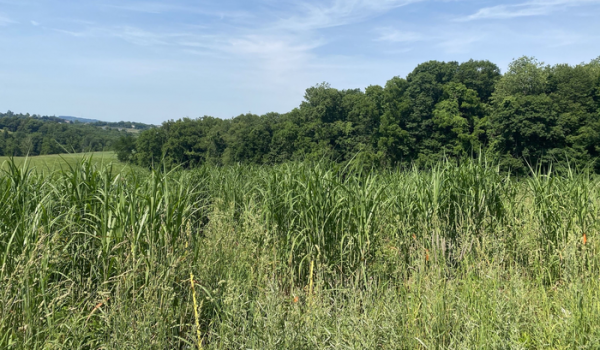West Virginia University researchers are working to better understand how climate change may make an impact on a bioenergy crop that flourishes on reclaimed mining lands.
Previously living materials, including perennial grasses like Miscanthus x giganteus, produce bioenergy. Ember Morrissey, associate professor of environmental microbiology in the Davis College of Agriculture, Natural Resources and Design, is examining the symbiotic relationship between microbes and this type of tall grass to prepare for climate change and decreasing fossil fuel usage.
The research group includes Jeff Skousen, professor of soil science, Louis McDonald, professor of environmental soil chemistry and soil fertility, and Jenni Kane, a doctoral student in plant and soil sciences.
Skousen, an expert in soil reclamation, helped Morrissey establish miscanthus stands on marginal soil for research over the next five years funded with a more than $817,000 grant from the National Institute of Food and Agriculture.
Read more at West Virginia University
Image: Researchers at WVU’s Davis College of Agriculture, Natural Resources and Design will use $817,000 in grant funding from the National Institute of Food and Agriculture to study the resiliency of miscanthus, a bioenergy crop that grows well on reclaimed mine land. (Credit: Submitted photo/Jenni Kane)


